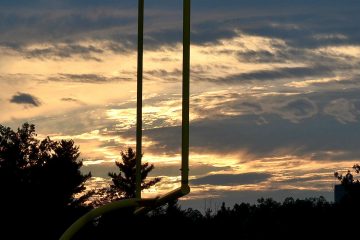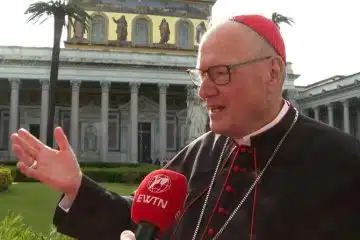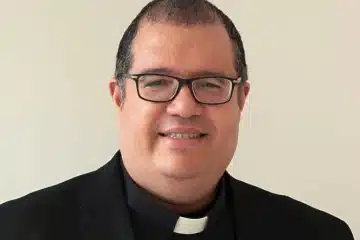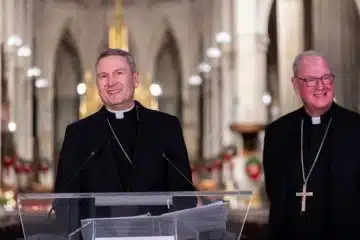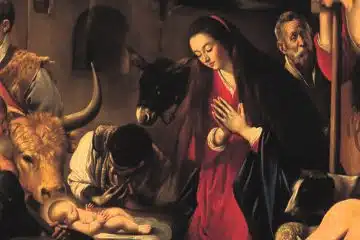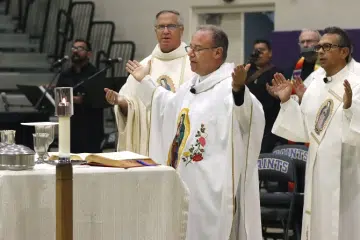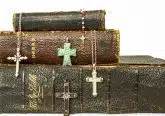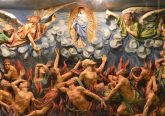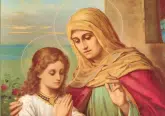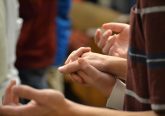Parish Councils
What is the role of parish councils? I understand that some councils are being reorganized due to Beacons of Light. How will the new councils function?
The Church recognizes the lay faithful’s vital role in assisting with their parishes’ governance, including participation in pastoral councils. This is one of many ways the lay faithful enrich the Church through their varied gifts and experiences.
As Pope St. John Paul II wrote in his apostolic exhortation on the lay faithful, the laity are “made sharers in the priestly, prophetic and kingly office of Christ.” And while they accomplish their vocations chiefly in the world, they have much to provide through roles of service with and for the Church (Christifideles Laici, 9).
COUNCIL FORMATION
According to Church law, when judged opportune by the bishop, “a pastoral council is to be established in each parish, over which the pastor presides and in which the Christian faithful, together with those who share in pastoral care by virtue of their office in the parish, assist in fostering pastoral activity” (Code of Canon Law (CCL), 536).
The pastoral council (often called a parish council), along with the finance council, helps the pastor make decisions, set priorities and understand the faithful’s perspectives. Council members can be determined by election, nomination or selection.
ROLE OF CONSULTATION
The parish councils’ role is consultative. Under the diocesan bishop’s authority, the pastor exercises the pastoral care of the parish “with the cooperation of other presbyters or deacons and with the assistance of lay members of the Christian faithful” (CCL, 519).
The pastor must approve the parish council’s suggestions and decisions before they can be implemented, even when the council votes. This does not mean that the deliberations and decisions are unimportant; they are part of the Church’s theology of communion that allows for the sharing of governance within the Church’s hierarchical structures.
WORKINGS OF THE COUNCIL
Each parish council functions according to its community’s needs. The number of members and their terms of office, frequency of meetings and meeting structure vary. All councils, however, are charged to work with the pastor to better the parish (or parishes) the members represent. In a particular way, the council is the means by which the parishioners’ voices are made known. The council members bring their perspectives to the pastor, helping to further dialogue and communication between the council, the pastor, the parish staff and the parish’s various commissions and organizations.
NEW FORMS
In the Archdiocese of Cincinnati, the pastoral planning initiative Beacons of Light necessitated changes in how councils function. Since multiple parishes in an area are often led by a single pastor, parish councils are being reorganized to assist the pastor in administering a Family of Parishes.
A unified council for a Family of Parishes should ordinarily have at least one representative from each parish; all members are to assist the pastor in the governance of all parishes in the family, not just the member’s own parish. In this way, the unified parish council can assist the pastor in planning, goal setting and overall collaboration between the parishes.
Whether it is a unified or single-parish council, it is a significant representative body. It is an expression of the faithful’s gifts, which enrich the Church. As St. Paul reminds us: “There are different kinds of spiritual gifts but the same Spirit; there are different forms of service but the same Lord; there are different workings but the same God who produces all of them in everyone” (1 Cor. 12: 4-6).
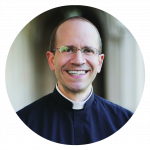 Father David Endres is professor of Church history and historical theology at Mount St. Mary’s Seminary & School of Theology.
Father David Endres is professor of Church history and historical theology at Mount St. Mary’s Seminary & School of Theology.
This article appeared in the August 2024 edition of The Catholic Telegraph Magazine. For your complimentary subscription, click here


